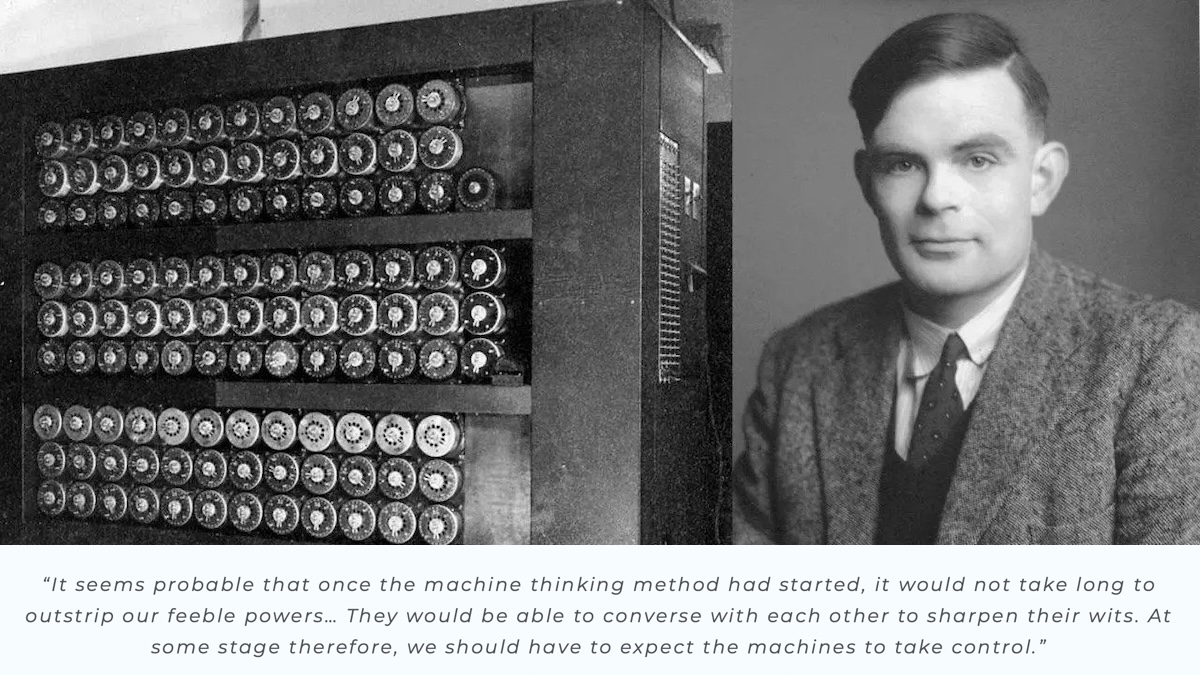Alan Turing, famous mathematician, Nazi Enigma Machine code-breaker and the father of AI and modern computer science.
“It seems probable that once the machine thinking method had started, it would not take long to outstrip our feeble powers… They would be able to converse with each other to sharpen their wits. At some stage therefore, we should have to expect the machines to take control.” – Alan Turing (1951)
You cannot make a machine to think for you.’ This is a commonplace that is usually accepted without question. It will be the purpose of this paper to question it. Intelligent Machinery, A Heretical Theory (c.1951) Alan Turing
- It has been shown that there are machines theoretically possible which will do something very close to thinking.
- My contention is that machines can be constructed which will simulate the behaviour of the human mind very closely. They will make mistakes at times, and at times they may make new and very interesting statements, and on the whole the output of them will be worth attention to the same sort of extent as the output of a human mind.
- If the machine were able in some way to ‘learn by experience’ it would be much more impressive. If this were the case there seems to be no real reason why one should not start from a comparatively simple machine, and, by subjecting it to a suitable range of ‘experience’ transform it into one which was much more elaborate, and was able to deal with a far greater range of contingencies. This process could propably be hastened by a suitable selection of the experiences to which it was subjected. This might be called ‘education’.
- It seems probable that once the machine thinking method had started, it would not take long to outstrip our feeble powers. There would be no question of the machines dying, and they would be able to converse with each other to sharpen their wits. At some stage therefore we should have to expect the machines to take control, in the way that is mentioned in Samuel Butler’s Erewhon.
- [Note: Erewhon (1872). Butler was the first to write about the possibility that machines might develop consciousness by natural selection.]


